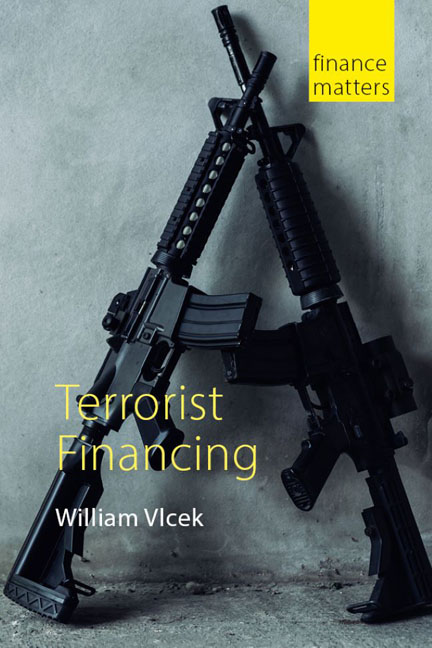Book contents
- Frontmatter
- Contents
- Preface and acknowledgements
- Acronyms and abbreviations
- 1 Foundations and origins
- 2 Terrorist financing in the twentieth century
- 3 In the aftermath of 9/11
- 4 Collective action against terrorist financing
- 5 Making CFT global
- 6 Dealing with new payment technologies
- 7 The financing of Islamic State
- 8 Reflections on combatting terrorist financing
- Notes
- References
- Index
1 - Foundations and origins
Published online by Cambridge University Press: 20 January 2024
- Frontmatter
- Contents
- Preface and acknowledgements
- Acronyms and abbreviations
- 1 Foundations and origins
- 2 Terrorist financing in the twentieth century
- 3 In the aftermath of 9/11
- 4 Collective action against terrorist financing
- 5 Making CFT global
- 6 Dealing with new payment technologies
- 7 The financing of Islamic State
- 8 Reflections on combatting terrorist financing
- Notes
- References
- Index
Summary
The United Nations (UN) opened the treaty entitled “International Convention for the Suppression of the Financing of Terrorism” for signature in 1999. Over a year later, on 10 September 2001, a grand total of four states had signed and ratified the treaty: Botswana, Sri Lanka, the United Kingdom and Uzbekistan. The events of 11 September 2001 and the response, individually and collectively, to the terrorist attacks on New York City and Washington, DC changed the need and utility for this particular UN Convention. Financial surveillance and the tracking of the economic activity of individuals and groups would be massively increased as a leading element of the new “war on terror”. Measures to combat the financing of terrorism (CFT) would be crafted and all countries would be expected to introduce them to their national legal systems.
This book seeks to provide you with an understanding of why there were so few ratifications of the UN Convention on terrorist financing in September 2001 as compared to September 2002. The Convention entered into force on 10 April 2002 following the 22nd ratification of it. Further, you will gain an understanding of the development and evolution of the global regime to combat terrorist finan¬cing in the first two decades of the twenty-first century. This chapter prepares you with several background concepts to establish a foundation for the material covered in the remaining chapters. The next section begins with a definition of terrorism as a political act, a necessary prerequisite for defining terrorist finance. But first there is a section developing the concept of money that is implied in the activity of terrorist financing. Following the definition of terrorist financing, drawn from the UN Convention, the chapter offers some background on the Financial Action Task Force (FATF), the international organization created to address money laundering by illegal drugs traffickers. It would be drafted into international efforts against terrorism in 2001, and attempt to apply its existing expertise developed to counter money laundering to terrorist financing. The final section of this chapter points towards the topics covered in each of the remaining chapters of the book.
- Type
- Chapter
- Information
- Terrorist Financing , pp. 1 - 14Publisher: Agenda PublishingPrint publication year: 2022

